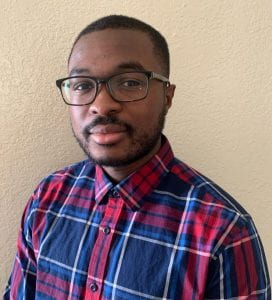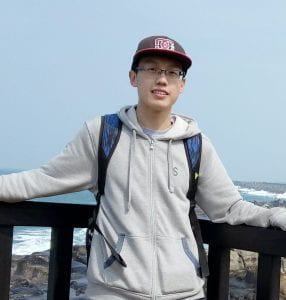Post-Doctoral Researchers:
 Yan Fang joined the Integrated Circuits and Systems Research Laboratory (ICSRL) as a postdoctoral fellow in Fall 2018. Yan received his M.S. and Ph.D. degree in Computer Engineering from University of Pittsburgh in 2013 and 2018, respectively. He received his B.S. degree in Electrical Engineering from Xidian University, China, in 2010. His research interests include biomimetic/brain-inspired computing systems based on emerging nanodevices as well as smart materials that compute and their applications in machine intelligence. He is also interested in other related topics, such as dynamical systems, computational neuroscience and robotics.
Yan Fang joined the Integrated Circuits and Systems Research Laboratory (ICSRL) as a postdoctoral fellow in Fall 2018. Yan received his M.S. and Ph.D. degree in Computer Engineering from University of Pittsburgh in 2013 and 2018, respectively. He received his B.S. degree in Electrical Engineering from Xidian University, China, in 2010. His research interests include biomimetic/brain-inspired computing systems based on emerging nanodevices as well as smart materials that compute and their applications in machine intelligence. He is also interested in other related topics, such as dynamical systems, computational neuroscience and robotics.
Website: https://sites.google.com/site/yansivorytower/
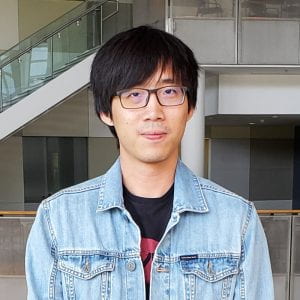 Muya Chang received his Ph.D. in Electrical and Computer Engineering (ECE) and M.S. in Computer Science. He is currently a post-doctoral fellow in Integrated Circuits and Systems Research Lab and advised by ECE Professor Arijit Raychowdhury. His research interests include energy-efficient hardware design for distributed optimizations. In 2014, he received the Exchange Program Scholarship Award to the University of Illinois at Urbana-Champaign. He is the recipient of 2019 Qualcomm Innovation Fellowship Award, 2019 Chih Foundation Graduate Student Research Publication Award, 2019 Taiwan Government Scholarship Award, CICC’2021 Best Paper Award, ORS’2022 Best Paper Award.
Muya Chang received his Ph.D. in Electrical and Computer Engineering (ECE) and M.S. in Computer Science. He is currently a post-doctoral fellow in Integrated Circuits and Systems Research Lab and advised by ECE Professor Arijit Raychowdhury. His research interests include energy-efficient hardware design for distributed optimizations. In 2014, he received the Exchange Program Scholarship Award to the University of Illinois at Urbana-Champaign. He is the recipient of 2019 Qualcomm Innovation Fellowship Award, 2019 Chih Foundation Graduate Student Research Publication Award, 2019 Taiwan Government Scholarship Award, CICC’2021 Best Paper Award, ORS’2022 Best Paper Award.
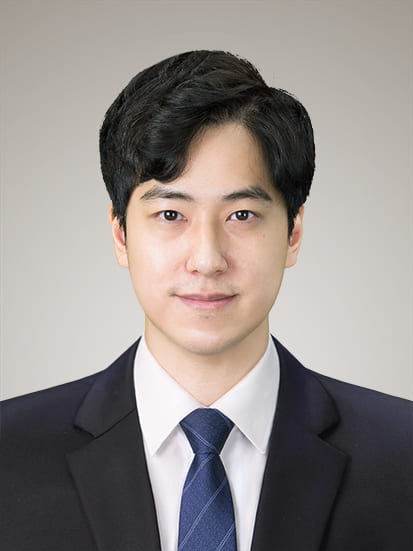 Sigang Ryu received the B.S. degree in electrical engineering from Korea University, Seoul, South Korea, in 2011, and the M.S. and Ph.D. degrees in electrical engineering from Seoul National University, Seoul, in 2014 and 2019, respectively. In the fall of 2021, he joined the Integrated Circuits and Systems Research Laboratory (ICSRL) as a post-doctoral fellow.
Sigang Ryu received the B.S. degree in electrical engineering from Korea University, Seoul, South Korea, in 2011, and the M.S. and Ph.D. degrees in electrical engineering from Seoul National University, Seoul, in 2014 and 2019, respectively. In the fall of 2021, he joined the Integrated Circuits and Systems Research Laboratory (ICSRL) as a post-doctoral fellow.
From 2017 to 2018, he worked as a researcher with the Institute of New Media and Communications (INMC), Seoul National University. From 2019 to 2021, he was a post-doctoral researcher with the Inter-University Semiconductor Research Center (ISRC). His research interests include high-speed timing circuits (D/PLL and CDR), equalizers, ADC, and their design methodologies. For now, his interests also include power-efficient DSP implementation based on various learning algorithms. For more information, welcome to visit his Google Scholar page.
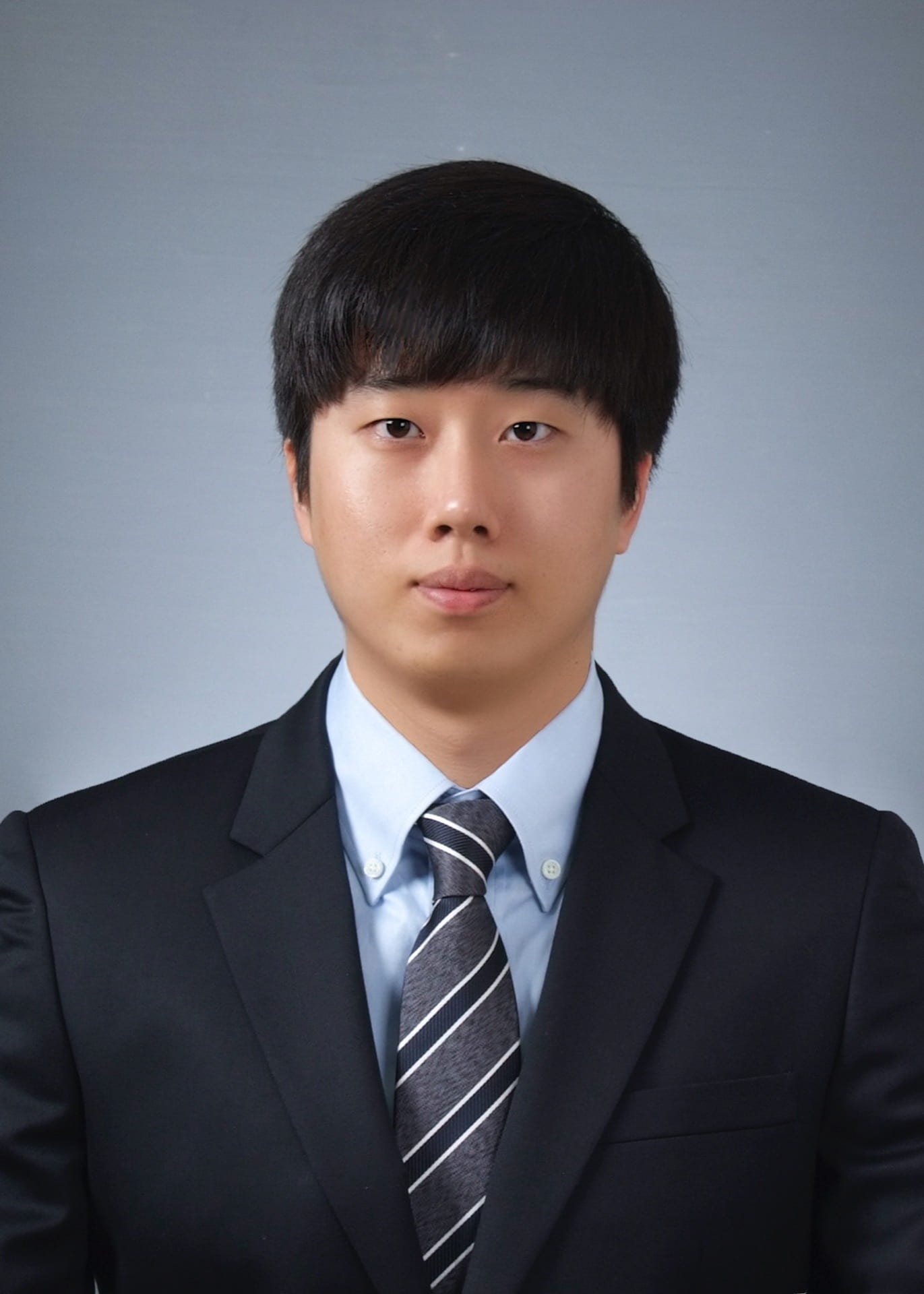 Young-Seok Noh received the B.S. degree in electronic systems engineering from Hanyang University, Ansan, South Korea, in 2014, the M.S. degree in electrical engineering from the Pohang University of Science and Technology (POSTECH), Pohang, South Korea, in 2016, and the Ph.D. degree in electrical engineering from the Korea Advanced Institute of Science and Technology (KAIST), Daejeon, South Korea, in 2021. From 2021 to 2023, he worked in Samsung Electronics Ltd., Suwon, South Korea, where he was involved in the design review of power management integrated circuits for mobile applications. In the spring of 2023, he joined the Integrated Circuits and Systems Research Laboratory (ICSRL) as a research engineer.
Young-Seok Noh received the B.S. degree in electronic systems engineering from Hanyang University, Ansan, South Korea, in 2014, the M.S. degree in electrical engineering from the Pohang University of Science and Technology (POSTECH), Pohang, South Korea, in 2016, and the Ph.D. degree in electrical engineering from the Korea Advanced Institute of Science and Technology (KAIST), Daejeon, South Korea, in 2021. From 2021 to 2023, he worked in Samsung Electronics Ltd., Suwon, South Korea, where he was involved in the design review of power management integrated circuits for mobile applications. In the spring of 2023, he joined the Integrated Circuits and Systems Research Laboratory (ICSRL) as a research engineer.
His research interests include CMOS analog integrated circuit design with an emphasis on energy harvesting and power management, as well as electromagnetics such as radiated emission and wireless power transfer. At ICSRL, his research interests lies in machine learning algorithms, deep learning, and signal processing. He was a recipient of the Bronze Prize in the 27th Human-Tech Paper Award hosted by Samsung Electronics in 2021.
PhD Students:
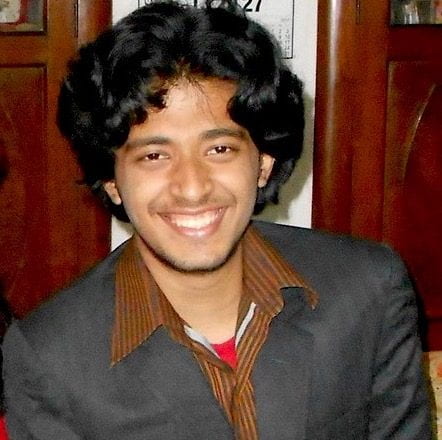 Bitan Bhar received his Bachelors degree in Electronics and Telecommunication from Jadavpur University in 2012 and he completed his Master’s degree from IIT Mumbai in 2014. After that, he worked in Cisco Systems for two years as a system software engineer and in Samsung Semiconductor India (R&D) for one year as a hardware verification engineer. He joined Georgia Tech for his Phd as he wants to be an academic. He is really fascinated by Mathematics.
Bitan Bhar received his Bachelors degree in Electronics and Telecommunication from Jadavpur University in 2012 and he completed his Master’s degree from IIT Mumbai in 2014. After that, he worked in Cisco Systems for two years as a system software engineer and in Samsung Semiconductor India (R&D) for one year as a hardware verification engineer. He joined Georgia Tech for his Phd as he wants to be an academic. He is really fascinated by Mathematics.
Bitan also loves stories and movies involving fantasy, magic and superheroes.
 Brian Crafton received his B.S. in Computer Engineering from Northeastern University in Boston. He spent two and a half years in the industry working for AMD, Intel, and EMC before joining Georgia Tech in Fall 2017. At AMD, he worked on digital design and verification for the graphics team and at Intel he worked as a firmware engineer for the wearables group. His research interest lies at the interface of emerging devices and computation. He is the recipient of 2019 Qualcomm Innovation Fellowship, VLSI-SoC’2020 Best Paper Award, ISLPED’2021 Best Paper Award, and ORS’2022 Best Paper Award.
Brian Crafton received his B.S. in Computer Engineering from Northeastern University in Boston. He spent two and a half years in the industry working for AMD, Intel, and EMC before joining Georgia Tech in Fall 2017. At AMD, he worked on digital design and verification for the graphics team and at Intel he worked as a firmware engineer for the wearables group. His research interest lies at the interface of emerging devices and computation. He is the recipient of 2019 Qualcomm Innovation Fellowship, VLSI-SoC’2020 Best Paper Award, ISLPED’2021 Best Paper Award, and ORS’2022 Best Paper Award.
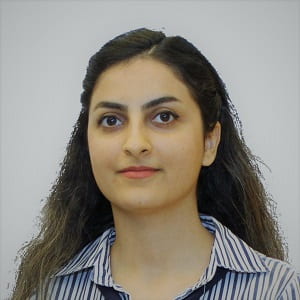 Foroozan Karimzadeh is currently a PhD student in Georgia Institute of Technology. She received her M.S and B.S. degree in Biomedical Engineering and Electrical Engineering from Shiraz University, Iran, respectively. Her research interests primarily include hardware-centric Machine learning algorithms, Deep Learning and Signal processing. She is the recipient of 2021 Semiconductor Research Corporation (SRC) Graduate Fellowship.
Foroozan Karimzadeh is currently a PhD student in Georgia Institute of Technology. She received her M.S and B.S. degree in Biomedical Engineering and Electrical Engineering from Shiraz University, Iran, respectively. Her research interests primarily include hardware-centric Machine learning algorithms, Deep Learning and Signal processing. She is the recipient of 2021 Semiconductor Research Corporation (SRC) Graduate Fellowship.
 Anupam Golder received his B.Sc. in Electrical and Electronic Engineering from Bangladesh University of Engineering and Technology (BUET), Dhaka, Bangladesh, in 2015. He has started his PhD at Georgia Institute of Technology from Fall 2018. He has almost three years of experience in the academia in Bangladesh before joining Integrated Circuits and Systems Research Laboratory (ICSRL) as a Graduate Research Assistant. His research interests include Analog and Digital VLSI Circuit and System Design, Machine Learning, and Hardware Security.
Anupam Golder received his B.Sc. in Electrical and Electronic Engineering from Bangladesh University of Engineering and Technology (BUET), Dhaka, Bangladesh, in 2015. He has started his PhD at Georgia Institute of Technology from Fall 2018. He has almost three years of experience in the academia in Bangladesh before joining Integrated Circuits and Systems Research Laboratory (ICSRL) as a Graduate Research Assistant. His research interests include Analog and Digital VLSI Circuit and System Design, Machine Learning, and Hardware Security.
Rakshith Saligram received his B.E. in Electronics and Communication from BMS College of Engineering, Bangalore India, in 2013. He worked as a teaching associate in the same department for one year. He received his MS Honors in Electrical Engineering from University of Southern California Los Angeles in 2016. He then joined as Graphics Hardware Engineer in Intel Corporation Folsom, CA to work on multiple generations of Intel’s GFx Processors in 3D graphics and Graphics Technologies. In this role, he was responsible for RTL-GDS-II and served as Section and Full-Chip PV Owner, Section Timing Owner and Section Quality Owner. He has authored a few IEEE conference papers and International journals on Reversible Logic Circuits. In the Spring of 2019, he started his doctoral studies at Georgia Institute of Technology and joined ICSRL. His areas of interest include High Speed IO Circuits, Low power Logic Design and Computer Architecture. He is the recipient of 2020 ORNL Seed Research Award.
Website: https://saligram91.github.io/rsaligram/
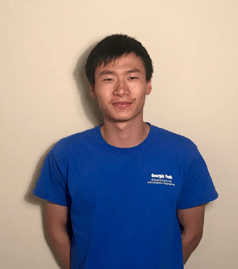 Minxiang Gong was born in Changzhou, China in 1995. He received his Bachelor’s degree in Information Engineering from Southeast University in 2017. He began his graduate study at Georgia Tech in fall 2017. He joined the ICSRL group in the spring 2019, and he is now pursuing his PhD degree. His research interest lies in mixed signal circuits and systems.
Minxiang Gong was born in Changzhou, China in 1995. He received his Bachelor’s degree in Information Engineering from Southeast University in 2017. He began his graduate study at Georgia Tech in fall 2017. He joined the ICSRL group in the spring 2019, and he is now pursuing his PhD degree. His research interest lies in mixed signal circuits and systems.
 Samuel Spetalnick received his B.S. in EE and CE from the Johns Hopkins University in Baltimore, Maryland in 2018. He joined ICSRL to pursue his PhD in Fall of 2019. His research interests include memory and system design for low power and emerging applications with a focus on novel devices, circuits, and algorithms. He has received VLSI-SoC’2020 Best Paper Award, ISLPED’2021 Best Paper Award, and ORS’2022 Best Paper Award.
Samuel Spetalnick received his B.S. in EE and CE from the Johns Hopkins University in Baltimore, Maryland in 2018. He joined ICSRL to pursue his PhD in Fall of 2019. His research interests include memory and system design for low power and emerging applications with a focus on novel devices, circuits, and algorithms. He has received VLSI-SoC’2020 Best Paper Award, ISLPED’2021 Best Paper Award, and ORS’2022 Best Paper Award.
Ashwin Lele received his bachelors and masters degrees in Electrical Engineering with specialization in Microelectronics from IIT Bombay, India. He joined Georgia Tech and ICSRL in Fall 2019. His research interest lies in the hardware implementation of spiking neural networks. He is also interested in Indian classical music and plays the bamboo flute.
Website: https://sites.google.com/view/ashwin–lele/home
Sitong Wu received his B.S. degree in Electrical & Computer Engineering from the Georgia Institute of Technology. Right now, he is pursuing his M.S. degree with a focus on VLSI. In 2016, he joined the avionics group of USLI Rocket team working on the motor system (VIP). In the same year, he also worked in ICSRL on a camera system project as an undergraduate assistant. Starting from 2018, he has been working at ICSRL on designing an oscillator network for solving vertex coloring problems.
Ashwin Bhat received his Dual Degree (B.Tech + M.Tech) in Electrical Engineering specializing in Microelectronics from IIT Bombay where he worked on device-level modeling for RRAM. He then pursued an MS from the University of Michigan – Ann Arbor transitioning to Integrated Circuits & VLSI. He joined Georgia Tech in Summer 2020 where he is currently pursuing his Ph.D. degree. His research interests include Digital VLSI, Hardware Accelerators, and Non-Volatile Memories. Outside of academics, Ashwin’s hobbies include cooking, soccer, and traveling.
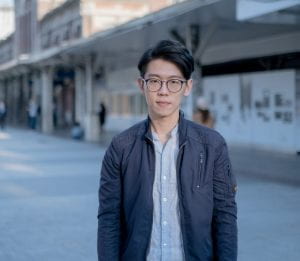 Nealson Li received his B.S. degree in the department of Electrical Engineering from National Cheng Kung University, Taiwan in July, 2016, and M.S. degree in Electrical and Computer Engineering from Georgia Tech, Atlanta, in December 2017. In 2018, he joined Qualcomm, as an ASIC design engineer. He worked on design and verification of last level cache controller for two years. He joined ICSRL in the Fall of 2020 and is currently pursuing his PhD degree in the department of Electrical and Computer Engineering at Georgia Institute of Technology. His research interests include VLSI Circuit and System Design, Wearables, AR/VR and Machine Learning. He is the receipt of 2023 ISSCC ‘Code-a-Chip” Travel Grant Award.
Nealson Li received his B.S. degree in the department of Electrical Engineering from National Cheng Kung University, Taiwan in July, 2016, and M.S. degree in Electrical and Computer Engineering from Georgia Tech, Atlanta, in December 2017. In 2018, he joined Qualcomm, as an ASIC design engineer. He worked on design and verification of last level cache controller for two years. He joined ICSRL in the Fall of 2020 and is currently pursuing his PhD degree in the department of Electrical and Computer Engineering at Georgia Institute of Technology. His research interests include VLSI Circuit and System Design, Wearables, AR/VR and Machine Learning. He is the receipt of 2023 ISSCC ‘Code-a-Chip” Travel Grant Award.
Adou Sangbone Assoa is from the Ivory Coast. He graduated with his Bachelor of Electrical Engineering from the University of Minnesota Twin-Cities in 2019. He joined ICSRL in Fall 2020. Assoa’s current research involves the exploration of circuit and hardware topologies that can implement combinatorial optimizations through a natural embedding of the Spin Glass model, which is derived from condensed matter physics. He is the recipient of 2021 Cadence Black Students in Technology Scholarship.
Zishen Wan received his B.S. degree from Harbin Institute of Technology, Harbin, China in 2018, and M.S. degree from Harvard University, Cambridge, MA, USA in 2020, both in electrical engineering. He joined Georgia Tech ICSRL as an ECE PhD student in Fall 2020. He has general research interests in VLSI, computer architecture, and edge intelligence, with a focus on efficient and reliable hardware system design for autonomous machines. His work has been recognized by IEEE Micro Top Picks Honorable Mention (2023), 1st place in ACM/SIGBED Student Research Competition (2022), Qualcomm Fellowship (2022), CRNCH PhD Fellowship (2021), DAC Best Paper Award (2020), and CAL Best Paper Award (2020).
Website: https://zishenwan.github.io
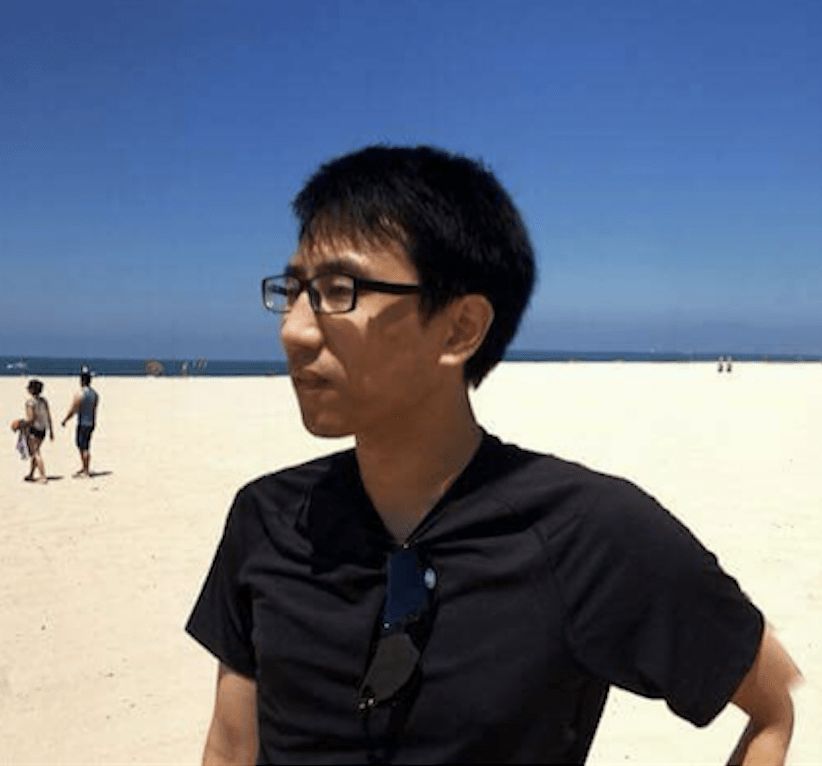 Hua Chen received his M.S. and B.S. degree from Electrical and Computer Engineering department at Georgia Institute of Technology. Before joining ICSRL, he worked at Northrop Grumman Corporation ASIC design team developing power management integrated circuit for industry applications. He joined ICSRL as a PhD student starting in 2022 spring to work on high voltage power systems design. His PhD research will focus on high efficient power management integrated circuit design techniques.
Hua Chen received his M.S. and B.S. degree from Electrical and Computer Engineering department at Georgia Institute of Technology. Before joining ICSRL, he worked at Northrop Grumman Corporation ASIC design team developing power management integrated circuit for industry applications. He joined ICSRL as a PhD student starting in 2022 spring to work on high voltage power systems design. His PhD research will focus on high efficient power management integrated circuit design techniques.
Visiting Research Associate:
 Shota Konno is a mixed-signal VLSI engineer at Asahi Kasei Microdevices (AKM) Corporation, Japan, where he has been engaged in the design and development of high-precision ADCs and sensor system since 2009. He received his B.S. and M.S. degree in condensed matter physics from Tohoku University, Sendai, Japan, in 2007 and 2009, respectively. In the winter of 2021, he joined the Integrated Circuits and Systems Research Laboratory (ICSRL) as a visiting research associate. His research interests include mixed-signal VLSI circuit and Machine Learning for emerging applications.
Shota Konno is a mixed-signal VLSI engineer at Asahi Kasei Microdevices (AKM) Corporation, Japan, where he has been engaged in the design and development of high-precision ADCs and sensor system since 2009. He received his B.S. and M.S. degree in condensed matter physics from Tohoku University, Sendai, Japan, in 2007 and 2009, respectively. In the winter of 2021, he joined the Integrated Circuits and Systems Research Laboratory (ICSRL) as a visiting research associate. His research interests include mixed-signal VLSI circuit and Machine Learning for emerging applications.
Master Students:
Arvind Srinivasan (Electrical and Computer Engineering, joined in Sept 2021)
Zhenkun Fan (Electrical and Computer Engineering, joined in Jan 2022)
Ying-Hao Wei (Electrical and Computer Engineering, joined in Jan 2022)
Undergraduate Students:
Connor Talley (Computer Engineering, Class of 2023)
Katarine E Klitzke (Computer Engineering, Class of 2023)
Johnathan Law (Computer Engineering, Class of 2023)
Albert Ting (Computer Engineering, Class of 2023)



